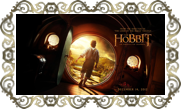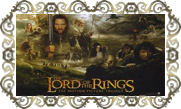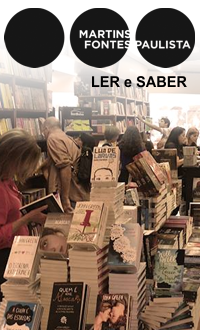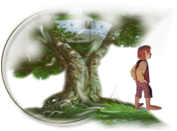

| I remember Renée Vink was working hard on the Dutch translation of Tolkien's The Legend and Sigurd and Gudrún when she participated in a chat session with Tom Shippey. "And then there's the brooding shadow of Wagner, whom Tolkien knew but did not (I think) like or respect." said Tom Shippey and not a week later appeared his review of The Legend and Sigurd and Gudrún in The Times Literary Supplement of May 6, 2009. It carried the title Tolkien out-Wagners Wagner. I recall the reaction by Renée Vink and today we can read the answer. I'm happy to announce Wagner and Tolkien: Mythmakers. "Both Rings were round and there the resemblance ceases", wrote J.R.R. Tolkien about the rings in his epic The Lord of the Rings and Richard Wagner's opera cycleThe Ring of the Nibelung. Or did he? The answer is not as straightforward as many Tolkien fans believe, whether they agree with the statement or consider it misguided. Nor is the statement itself as transparently defensive as some Wagner buffs suggest. Much has been said and written about Wagner and Tolkien, a subject that tends to generate a certain amount of heat, mostly due to the former's controversial status as Hitler's favourite composer. But until now the various, often contradictory opinions and the facts and perceptions on which they are based were rarely discussed at length or analysed in depth. The publication in 2009 of Tolkien's The Legend and Sigurd and Gudrún with its partly Wagnerian content reinforced the need for a systematic treatment of the subject. This book offers one. |
There is more to both Rings than their common roundness, and the resemblance between Tolkien and Wagner goes beyond a Ring of Power and some narrative elements: they shared a number of preoccupations and interests – Nature, nation, the North, death and immortality, language and above all, myth. This is a book about the two great mythmakers of their times, and about what they have in common despite everything that separate them.
This is a book I just need to read and I secretly hope it will be read by many, including professor Tom Shippey. And who knows he sends us over a small review to put online here?! And there we would have it, the circle closed again - another ring to add to the collection!
About the authorRenée Vink was born in Amsterdam and studied Scandinavian languages at the Universities of Leiden (The Netherlands) and Göteborg (Sweden). She has been working as a translator from Swedish, Norwegian, Danish, English and German into Dutch since the 1980s, translating among other things the poetry in Tolkien’s The Legend of Sigurd and Gudrún.
Being a long-time Tolkien fan and scholar, she has also published a number of articles in various Tolkienrelated magazines from 1982 onwards. Her other main interest is the work of Richard Wagner.
| Title: Wagner and Tolkien: Mythmakers Author: Renée VinkPublisher: Walking Tree PublishersPublication Date: 20 Jun 2012Type: paperback, 322 pagesISBN-10: 3905703254ISBN-13: 978-3905703252 |
Table of contents
Introduction
The Master and the Professor - Wagner and TolkienPart One, Two Round Rings
Chapter 1, A Conspiracy Unmasked?1.1. A Ring of Power1.2. Two round rings1.3. How well did Tolkien know Wagner?Chapter 2, Searching for Sources2.1. A list of similarities2.2. 'Faint and disparate echoes'2.3. Common sourcesChapter 3, What has it got in its pocketses?3.1. NoBirzer / Bratman / Spear / Müller / Scott Rohan / Ridpath3.2. YesHillard / Shippey / Haymes / Bayreuth and sundry / Ross, Kasper, and sex / The racism card, Schwartz & Arvidsson / Hate-speak3.3. DeliberatelyHall / O'Donoghue / Spengler / 'Thief Tolkien'
Chapter 4, Other Approaches4.1. The evils of powerWerner / Luke, and Ross again / What power? / Views of evil / Fear of the end4.2. A poisoned imagination?Chism and the poisoned sources / From myth to history
Chapter 5, ConclusionPart Two, Myths, Fairy Tales and Endings
Chapter 6, Romanticism and Mythmaking6.1. Introduction6.2. National mythsTolkien in England / Wagner in Germany6.3. Modern myth
Chapter 7, Nature and its Defilement
Chapter 8, A World too Much? Fantasy versus (Stage) Drama8.1. Myth and dramaDramatic narrative / Faërian drama / Visual representation8.2. Fantasy drama8.3. Music, words and the invisible stage
Chapter 9, Tragedy, Elegy, Eucatastrophe9.1. Tragedy versus comedy9.2. Revolution versus restoration9.3. The end of myth9.4. The end of the world?
Chapter 10, Conclusion
Part Three, The Amateur and the Professional
Chapter 11, Sources and Resources11.1. Pure and adulterated northernness11.2. Sigurd versus Siegfried
Chapter 12, Language12.1. Words, grammar and syntaxTolkien's archaisms / Attack and defence / Wagner's archaisms / Wordplay / Philological jests / Kennings12.2. AlliterationsStave rhyme rediscovered / Some technicalities / Wagner's verse / Tolkien's development / Rhythm and patterns12.3. Proverbiality
Chapter 13, Narrative Elements13.1. The Ring and the Legend – correspondencesIntroduction / From the beginning to Ragnarök / Baldr / The solar hero and the Saviour / Odin and Wotan13.2. The Ring and the Legend – differencesAssorted differences / Characteristic choices / Half-brother and full brothers13.3. Solving a conundrum: The ring at the coreThe sources / The botched tradition / The ring of fire / Did they do it?
Chapter 14, Conclusion
Afterword
BibliographyIndex of fictionGeneral index
| More on Wagner and Tolkien ... Tolkien and Wagner: The Ring and Der Ring Christopher MacLachlan Tolkien famously rejected comparison of his Ring with Wagner’s, though there is good evidence that Tolkien knew much more about Der Ring des Nibelungen than he let on after the publication of The Lord of the Rings. Analysis of that work from a Wagnerian point of view enables consideration of it in a new way. By exploring the parallels between Wagner’s Ring and Tolkien’s, a fresh interpretation of Tolkien’s work emerges, one that hinges on associating Gandalf with Wotan. Like Wagner’s god, Gandalf has to find a way of solving the problems posed by the Ring and like Wotan he cannot succeed without other people. When the plots of The Lord of the Rings (and The Hobbit) are examined in this way it becomes apparent how much they owe to Wagner’s music-drama, and the role of Gandalf is opened to new explanation. |
| Title: Tolkien and Wagner: The Ring and Der Ring Author: Christopher MacLachlanPublisher: Walkin Tree PublishersPublication Date: 25 Feb 2012Type: paperback, 252 pages ISBN-10: 3905703211ISBN-13: 978-3905703214 |
Spread the news about this J.R.R. Tolkien article:
Read more http://feedproxy.google.com/~r/TolkienLibrary/~3/CeRQnWel3xA/1045-Tolkien-and-Wagner.php














